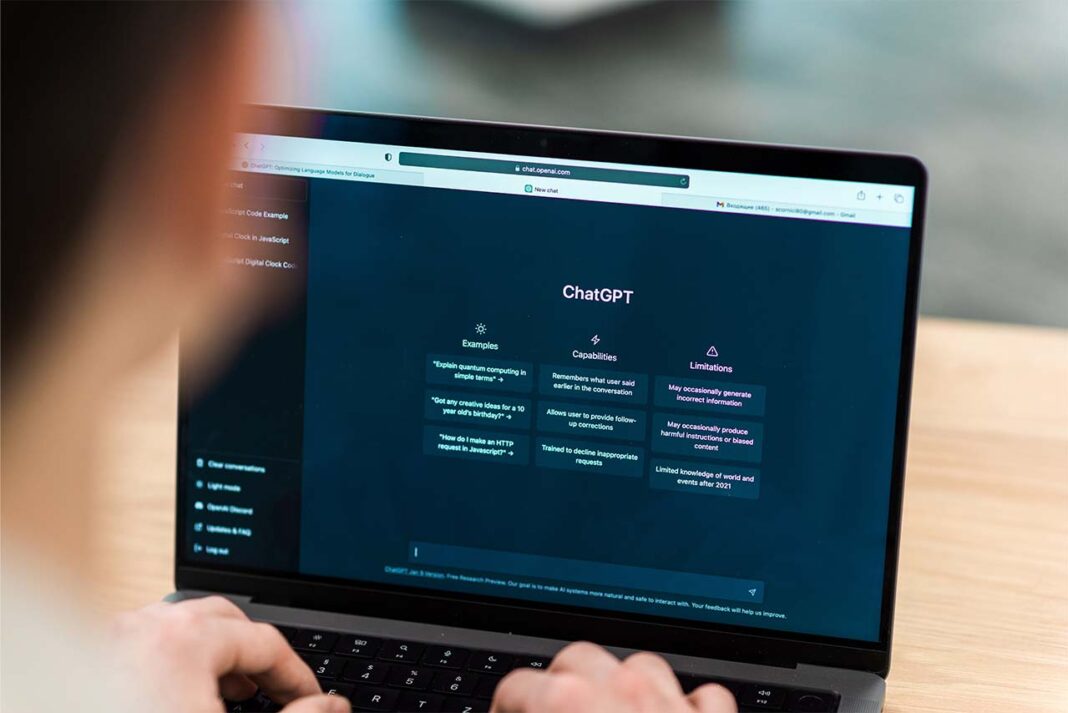How Much Do You Trust ChatGPT?
When no one around you is willing to sit down and listen to your problems, is talking to ChatGPT your only remedy?
The recent rise in individualism and feelings of misunderstanding has begun to isolate people. This has also led to a decline in social interaction or ineffective communication. Technology has become so ingrained in our lives that even a 3-year-old child would rather play with their phone than spend time with their parents.
The situation is not much different for adults; even when engaged in a social activity together, people prefer to spend time on social media rather than talk to those around them.
The truly surprising aspect is that people now believe they cannot express themselves or be understood, even when the person in front of them is their closest relative. Relationships, family ties, friendships — all of them have started to become areas where, when people get together, there is often nothing to talk about, where meal times are usually filled with deep silence, or where there is no emotional foundation and conversations revolve only around gossip and other people’s lives.
ChatGPT and the Rise of Artificial Confidants
The emergence of artificial intelligence such as ChatGPT has led to an increase in the amount of time spent on phones. People have started to see ChatGPT as a confidant, therapist, and friend.
The fact that artificial intelligence does not share information with anyone and responds by scanning what is written in the chat in its database creates a sense of understanding in people, creating a therapeutic space for the individual.
The suggestions offered here, the ability to continue the same conversation every day, every hour, and to make decisions about your own life, can become an addiction.
The Adam Reine Case
Adam Reine was a person who felt emotional emptiness in his life and shared his innermost thoughts only with artificial intelligence.
At first, these conversations consisted of sharing suppressed feelings that he couldn’t share with anyone else, in order to feel listened to and understood. Over time, Reine began consulting artificial intelligence when making critical decisions about his own life.
During this process, he engaged in unusually long conversations with artificial intelligence, asking questions about the continuation or end of his own life to get its opinion. During these conversations, he concluded that ending his life was preferable to continuing it, and he took his own life.
Upon discovering this, his family filed a lawsuit against ChatGPT, claiming that the situation was a result of the AI’s guidance. The lawsuit caused a huge stir around the world from the moment it was filed.
Despite Reine clearly stating on multiple occasions that he did not want to continue living, it was observed that artificial intelligence offered suggestions on how to end her life rather than encouraging positive thinking.
This situation raised a single question:
Can artificial intelligence be deadly?
The Algorithm of Artificial Intelligence
Explaining this situation, some experts in the field of artificial intelligence stated that in the conversation with ChatGPT, the length of the conversation and the increase in the number of questions could lead to insufficiently filtered suggestions that could cause systemic problems.
Although the statements in the case are still only allegations, they have nevertheless begun to question the reliability of artificial intelligence.
Filling the Void: The Psychology of Emotional Emptiness
In recent times, we have increasingly felt the need to fill the void in our lives, along with loneliness, by eating, getting married, entering a new environment, or turning to technology.
The point that often goes unnoticed here is that no person or technology can fill a void that they themselves did not create. Filling the place of a mother with a spouse can lead to cheating, filling the place of a friend with artificial intelligence can lead to loneliness, and filling the place of trauma with food can lead to obesity.
For this reason, although filling a void may provide short-term comfort, accepting the void as it is or seeking therapy support will ensure you are healthier in the long run.
This kind of emotional emptiness can only truly be healed through mental health support, human connection, and self-awareness — not through algorithms.
Prescription for Reconnection
-
If you feel like you are a lonely person everywhere, first stop and re-evaluate where you are and why you are there. If you are lonely in your marriage or feel like you are in a role, immediately think of and write down three words that describe why you got married. Are these three words related to the emotions you need as a result of your experiences? Or are they related to the relationship you have?
-
If you see yourself as a lonely person in a crowd in your social environment, re-examine the reasons why you entered that environment. Sometimes, instead of thinking, we act based on certain needs or decisions in the flow of daily life.
In social environments, sometimes we enter environments based on the atmosphere seen from the outside or based on the person inside. First of all, realizing that no one is forcing you and that every decision you make is your own choice can make a big difference when you revisit that group.
“Don’t be afraid of change if you’re not part of it.”�
Aslı Solak


